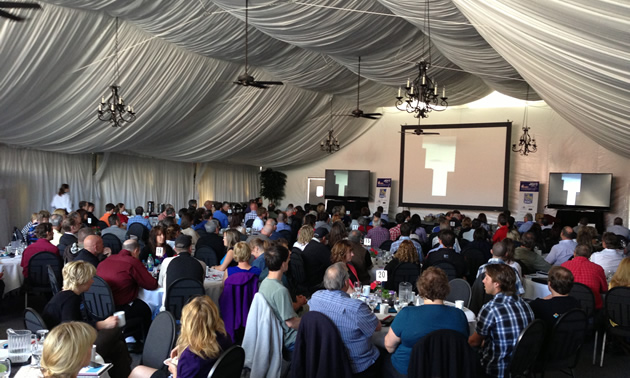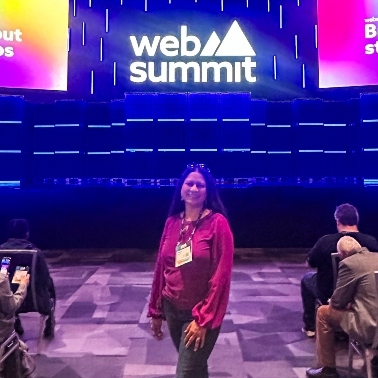Networking in the Kootenays
Mike Matejka of JCI Kootenay, discusses the role of networking and how it's supporting positive change within the community.
JCI is an international non-profit organization made up of over 200,000 people in 5000 communities in more than 100 countries across the world. The organization has been around since the early 1900s and its vision is to be the leading global network for young, active citizens. Its members believe in the importance of creating positive change within our communities and the world.
Mike Matejka is the chapter president for JCI Kootenay. Locally, the organization provides monthly meetings and training opportunities. It also holds social events every month to allow for face-to-face networking, and members participate in community projects like Relay for Life and the Santa Claus Parade in Cranbrook. The organization also raises funds so it can provide training and travel opportunities for members to attend conferences throughout the region and the country.
Kootenay Business sat down with Matejka to find out what JCI looks like at a local level and what the future holds for this organization.
What are some of the emerging trends that you see happening in the next one to three years?
I think both in what we do in non-profit and in other industries, we're trying to utilize our network more to share our ideas for best practices, successful events and projects. What we try to do is if we see another group that has a great idea, we like to see how that will work in our community and try to reciprocate that as well. I think that's true for other industries locally here in Cranbrook. There was a recent Black Friday event which brought the small business community together with the goal of increasing local shopping. So it seems to be there is the idea that a lot of those best practices should be shared more, even if it's amongst competitors, in order to create more economic stimulus that will allow everyone to have a bigger piece of the pie.
How is your organization affected by smartphones and social media?
There are always new forums and venues in which to provide networking opportunities. It has to be something that has to be managed well, because you can become oversaturated if you spread yourself too thin by being a part of too many of these networking sites. We consciously have to make sure that we're only going to hit a couple of spots as far as our networking goes, to make sure we're keeping all of our information current and up to date.
In what ways has your organization grown over the last few years?
I think it's been a constant trend for some time as globalization continues and the ability for developing countries to access more technology. You're able to have real-time communication across the globe. As developing countries become more technologically inclined and as they become more developed, a lot of their situations become a lot more similar to ours, so the scope of people's networks can expand as their situations become a lot more similar and relevant to what we're doing here.
Do you anticipate there will be an increase in careers in the area over the next decade?
There's definitely going to be an increase in the opportunity. It's difficult to say as far as careers are concerned, because it's something that a lot of people do sort of in their spare time. As far as it being a full-time thing to do, it's difficult to say, but there's definitely opportunities. People just need to acknowledge it does have to be managed, and managed well, or you fall behind.
If someone is interested in JCI, what sort of experience and education do you think would be relevant?
The big thing is you have to be into technology and that obviously comes with age or what generation you're from. A lot of the younger people coming out of school get the technology skills right off the bat, so they're able to navigate the social media sites. It's a lot easier for them than some of the people who were brought up in the industry without any of those tools and are now trying to adapt to those tools, which are now becoming standard. But at the same time it's becoming more difficult for some of the younger people who are used to using just the social media sites to actually get that hands-on, face-to-face interaction which is also valued a lot when it comes to providing public service and interacting with your coworkers and peers.
What are some other emerging technologies that you’re looking forward to utilizing?
I don't know if there's anything too cutting edge that's happening for us. It's more just trying to manage some of the technologies that are becoming more widely available, such as real-time video networking and stuff like that. It does help take a little bit of the blandness out of just doing social media as far as texting and typing. Being able to see people face-to-face on a screen from across the world does help improve a little bit of those social skills that may have been lost from the earlier forms of social media.
What is one of the biggest challenges your organization faces in the next three years?
I would probably relate back to dealing with the generation gap and the skills gap that happens between people that are in the working industry. There is still a large gap between people that have entered the working industry in the last 10-15 years and the people that are nearing retirement that still make up a large part of the working population. We need to try to bridge that gap and make sure that some of the people still in the networking industry aren't left behind and are brought up to better understand and handle the technology. Also, we want the younger people to be more encouraged to become part of networks, and part of networks that allow you to have that personal interaction so you have those skills to help you in your personal and professional life.
What is the biggest opportunity for members of your organization?
Being able to reach out to more people. Every day there's more and more people that are connected to networking sites and networking organizations in one way or another. It's trying to find a way to actually take them from that initial step into a network. So taking them from maybe a passive point like being on Facebook and Twitter and bringing them into a stronger network where they can be part of an active group that is going to be advocating for something or trying to create positive change within a community or in the world around them.








Comments